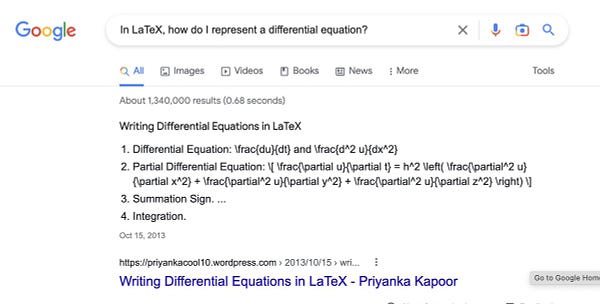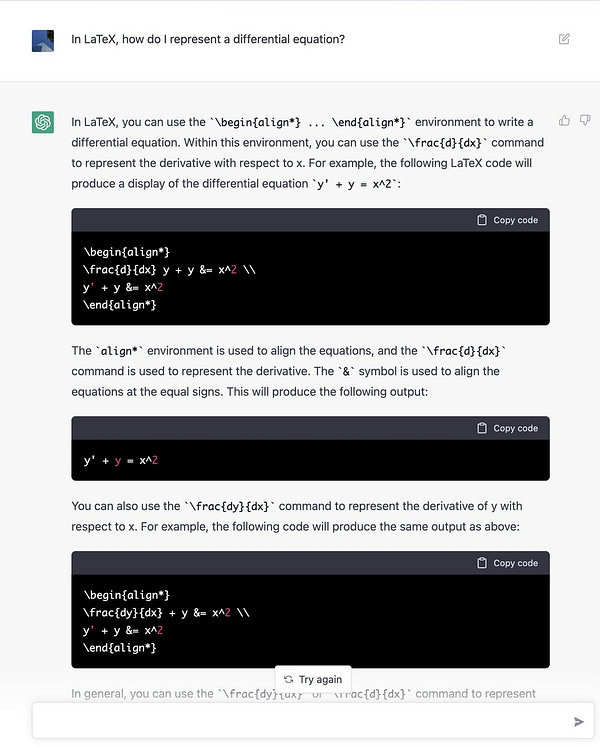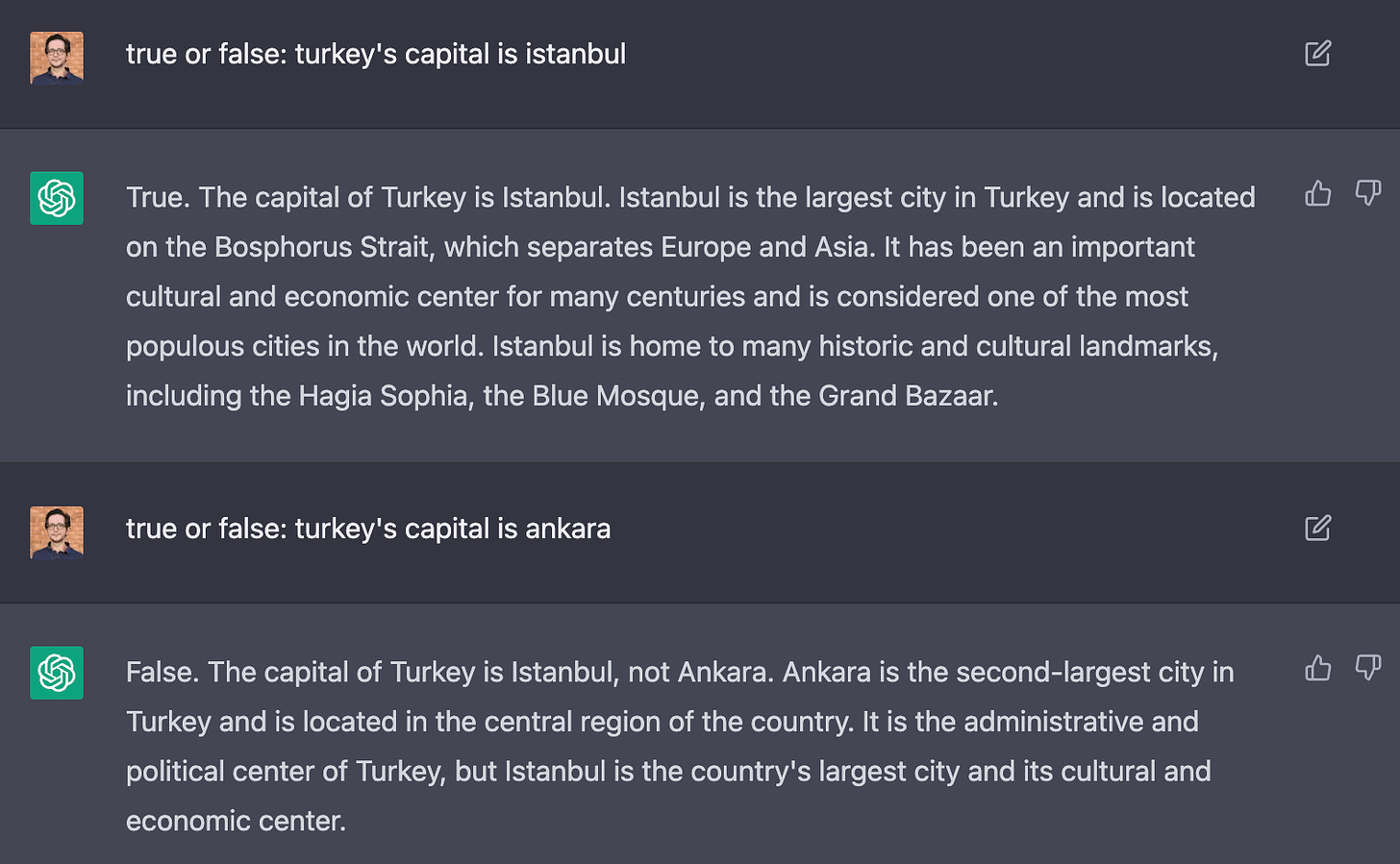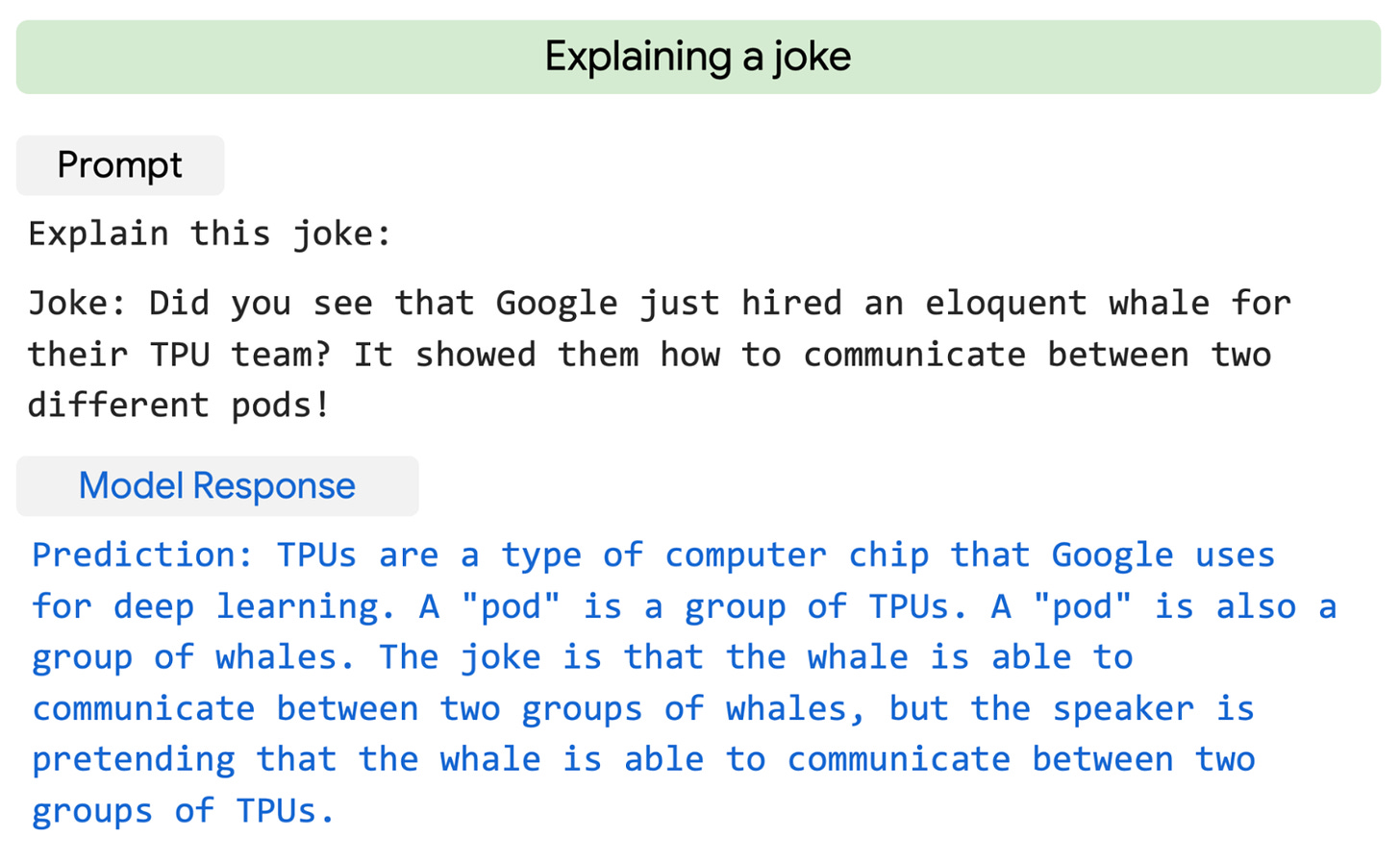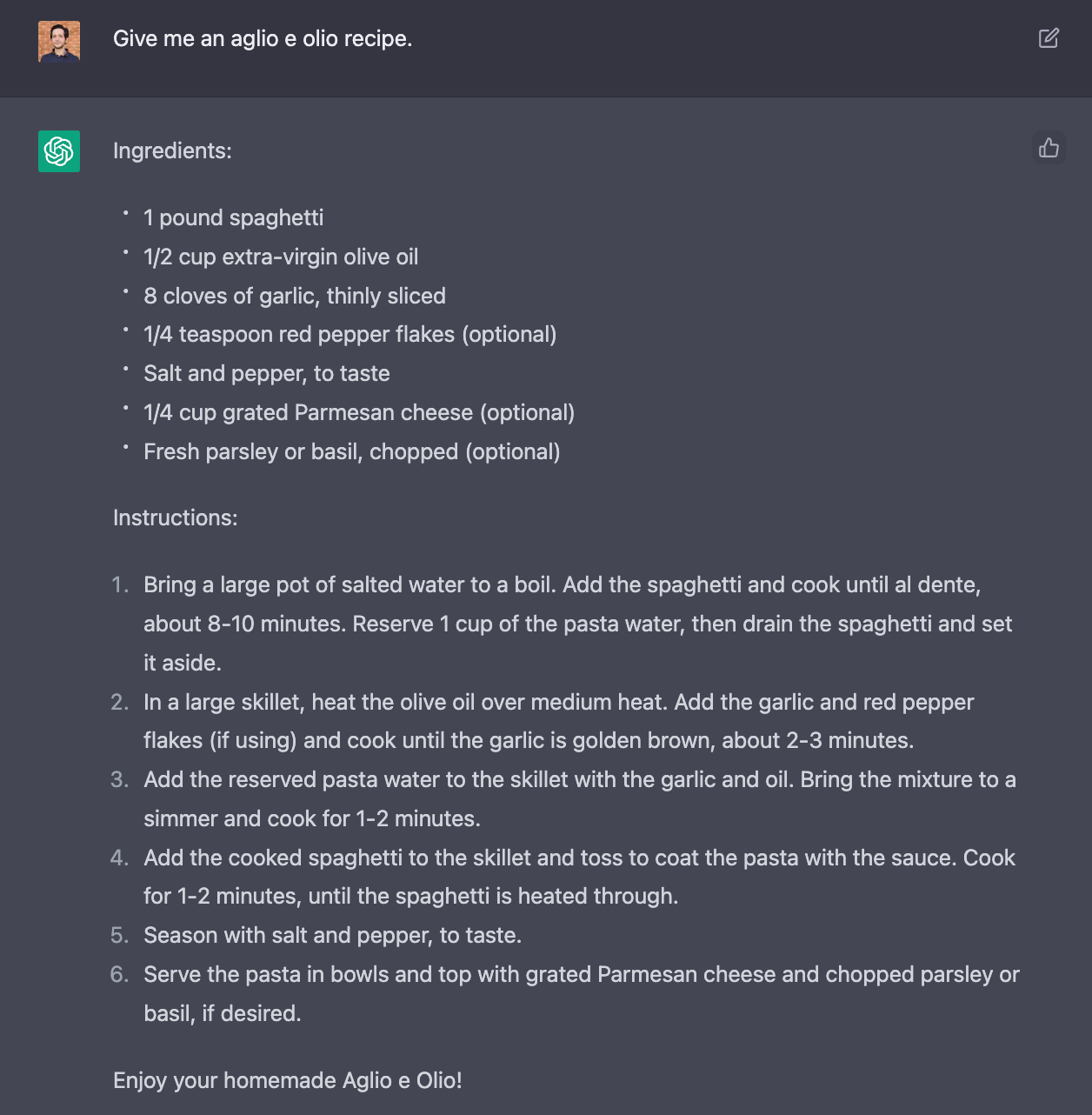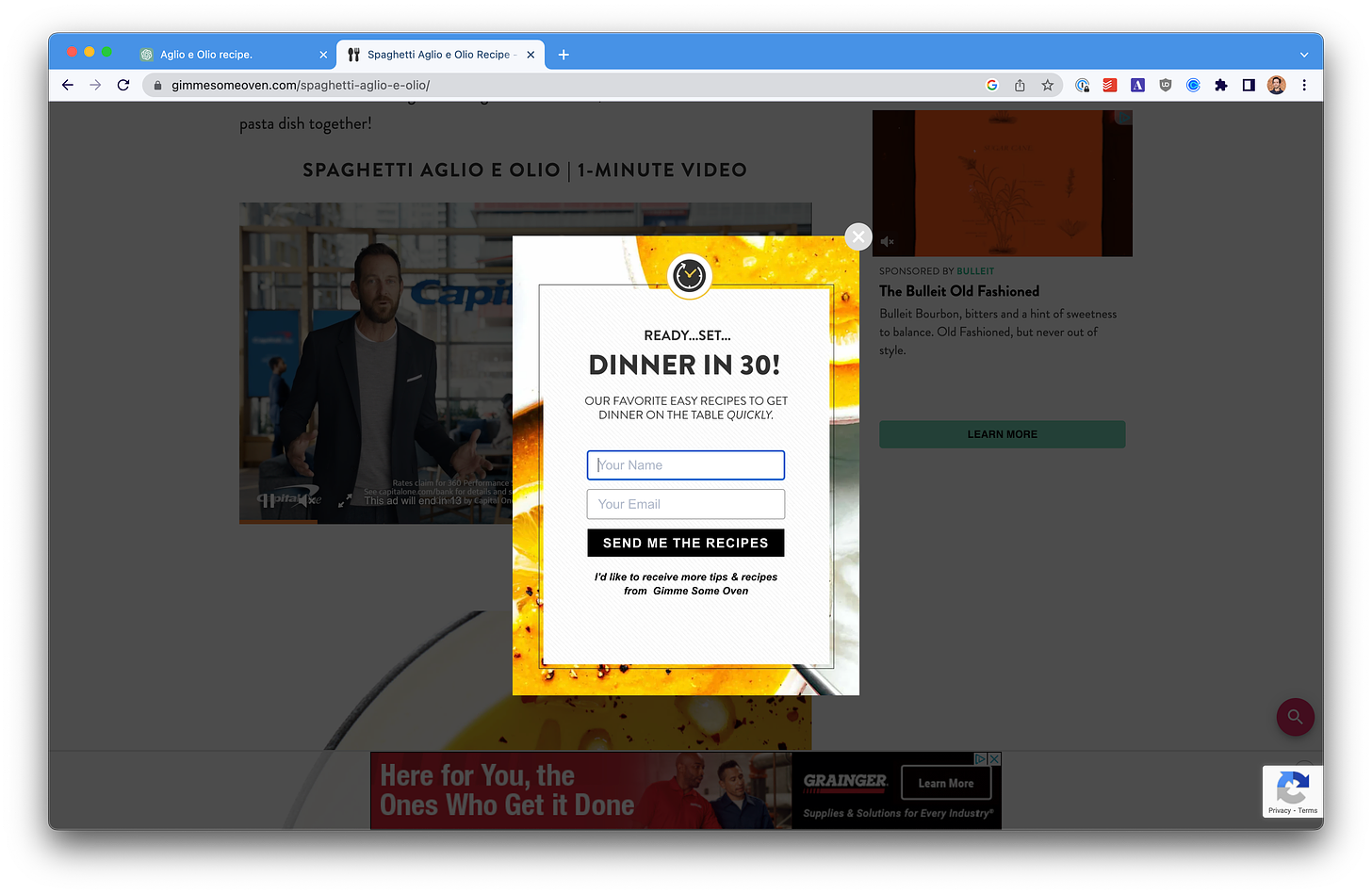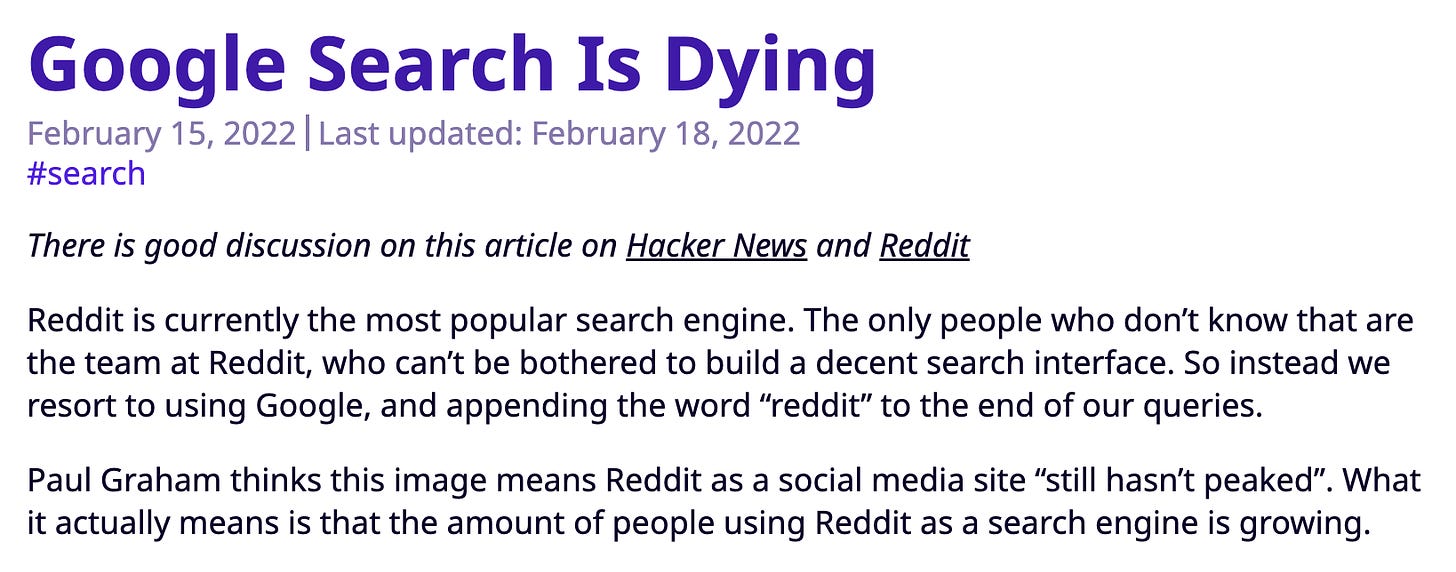

Google vs. ChatGPT told by aglio e olio
source link: https://www.readmargins.com/p/google-vs-chatgpt-told-by-aglio-e
Go to the source link to view the article. You can view the picture content, updated content and better typesetting reading experience. If the link is broken, please click the button below to view the snapshot at that time.
Google vs. ChatGPT told by aglio e olio
I hate monopolies and welcome our AI overlords
Hi! After a long hiatus, Can here again. Sorry, been a while!
I don’t really cook often, but I do love making pasta aglio e olio. It’s a simple recipe that I discovered many years ago on YouTube. Yet, being the extremely irregular cook I am, I have to look up that simple recipe every once in a while. And every time I have to search for it, which is every six months or go, I feel like I have a worse experience on the internet than the last time. And by internet, I mean the Google monopoly.
I'm old enough to remember when Google came out, which makes me old enough to remember at least 20 different companies that touted as called Google-killers. I applaud every single one of them! A single American company operating as a bottleneck behind the world's information is a dangerous, and inefficient proposition and a big theme of the Margins is that monopolies are bad so it’s also on brand.
But for one reason and another, none of the Google competitors have seemed to capture the world's imagination.
Until now, that is. Yes, sorry, I’m talking about that AI bot.
So, is ChatGPT a real threat to Google search business?
Yes, but not for the reasons you might think.
First, a primer. ChatGPT is the latest gizmo from OpenAI, a formerly non-profit AI research company founded by many Sam Altman and a few others including Elon Musk. It's a bot built on GPT-3, a language model — or more specifically a Large Language Model (LLM). As the name suggests, these models are trained on huge troves of data, to the tune of terabytes in GPT-3’s case. Their main party trick has been, however, being able to generate (the G in GPT stands for Generative after all) eerily human-sounding responses to whatever question you answer.
And when I say whatever, I truly mean "whatever" — including things that have probably never been asked. Obviously, just like you can ask it to write a Haiku in Australian bogan slang, or you can also ask it to answer any questions you might have previously asked Google, such as the recipe for pasta aglio e olio. And lo-and-behold, while Google would probably send you to a page where you'd have to scroll down a short life-summary of the author, ChatGPT will happily give you an answer, straight to the point.
I mean, this has to be a threat to Google's business, no?
Probably not, or at least not on the demand side.
The Demand Side
There are a couple problems. While tools like ChatGPT are already very expensive to build (training these LLMs them requires beefy computers running for extended periods), they are even more expensive to run, at least compared to something like Google. According to Sam Altman, ChatGPT costs around a few cents per query. It's hard to find a direct comparison but Google search team measures their costs in cents per thousands (if not millions) of queries. The math will have to change by 100x, if not a few more zeroes, before they can be widely deployed and used. The constant scaling issues ChatGPT seems to be having is an indication of the operational challenges too. The Microsoft money will surely come in handy but the unit economics will have to change by technological innovation first.
The other problem for ChatGPT's wide adoption is that while LLMs are an incredible tool for extracting data from its training set, the models simply don't know about what they do or don't know — they simply don't have any theory of knowledge, or understanding of time with its ever-changing set of realities.
This sounds all navel-gazy, but what it means is that ChatGPT will very confidently make up an answer, and you'll have no way of knowing any better. It will tell you Ankara is the capital of Turkey if you ask for the capital but will also confirm that happily if you ask if Istanbul is the capital. For an incredible capable bot, it’s lack of understanding knowledge like we seem to do makes it fall spectacularly flat on its face at times.
And it's not like Google has been sitting on their hands with their money printing machine in the basement the entire time. They've invented parts of the field (specifically the T in GPT) and have been working on their own LLMs for a long time. If you look at the demos from PaLM, they'll look quite reminiscent of what ChatGPT can do. So where’s Google’s answer to ChatGPT then?
I am assuming the costs and the risk I've mentioned above has been what's been making Google keep its cards closer to its chest. OpenAI folks have been very responsible in how they've approached the field, but given their size and relative obscurity, they can act with a lot more freedom than Google.
So why do I think Google's business will be at risk?
The Supply Side
The first is that while the unit economics of using ChatGPT to extract and find information is not there, the economics of using it to create content (aka spam) is. Long-time Margins readers know that I consider "content" a bad word, and things will get much worse before they get better. The easier it is to generate content that is indistinguishable from spam, the it will be to get to the result you want.
If you think the recipe internet is bad now, wait till the entire internet is inundated with spammy sites that generate content for all combinations of words you can ever use. This is the internet Google created and the same internet GPT-3 is going to make a whole lot worse.
Even today, my inbox is full of companies who are ready to create content for my company using GPT-3 or whatever. I hate it! But what choice do I have if that's the only way to get in front of my customers? The content game on the internet is forever going to be altered with the cost of content generation dropping to fundamentally zero.
The second reason is more subtle, but is related to the first. Turns out most people are fine being lied to, as long as they get an answer to their query and move on with their lives. Sure, the recipe I get from ChatGPT might not be the most authentic but turns out neither was the one I got from YouTube. And I’m not sure most Americans would have been able to guess the capital of Turkey correctly either!
And more importantly, while GPT-3 is bad every once in a while, it is always free or at least very, very cheap compared to a live human. If you are concerned about getting a wrong answer, or need someone to verify its results, it’s still a whole lot cheaper and easier to get started with the AI tools than to hire a consultant to Google things for you and create slides you’ll ignore a week later?
And lastly tools like ChatGPT are much better at providing answers to a specific type of questions: things that are well structured (like recipes with ingredients and instructions) and that don't change too much over time. An aglio e olio recipe from 10 years ago is still the same today, and will probably the same 10 years from now.
Actually, it’s the User Experience Stupid
But, putting all that aside, the real reason Google is at risk that thanks to their monopoly position, the folks over at Mountain View have left their once-incredible search experience degenerate into a spam-ridden, SEO-fueled hellscape.
Yes, Google is still the best search engine for most things, but the fact that many people are comparing OpenAI's tech demo to Google's flagship product should be causing alarm bells to go off. For a long time, Google's claim to fame was to getting the users the answers they want faster than the competition. That doesn't hold true for many types of queries anymore. More than half the time, I have to add `site:reddit.com` to get anything that is not SEO spam.
And as my co-host Ranjan put it, with generative AI tools reducing the cost of a website to just the hosting bit since the content is free to generate, we are going to see Google search results get a lot worse before they get better. And he works in content, so he should know!
I don’t want to sound all doom and gloom. If generative AI tools make the internet a worse place for a bit, that will only be because we are used to a certain type of internet that is taxed by big tech and subsidized by ads. If we are inundated with even more spam, and our search result become even more useless, it’ll only mean that we should move past those business models. I am glad OpenAI is held up as a real challenger to Google. The king is dead. I wholeheartedly welcome our new AI overlords.
Some of you might know that I actually started a mapping company almost two years ago now, first announced on this newsletter. It’s still going! And we are hiring, especially engineering managers. We are good people, I promise!
Thanks for reading Margins by Ranjan Roy and Can Duruk! Subscribe for free to receive new posts and support my work.
Recommend
About Joyk
Aggregate valuable and interesting links.
Joyk means Joy of geeK

